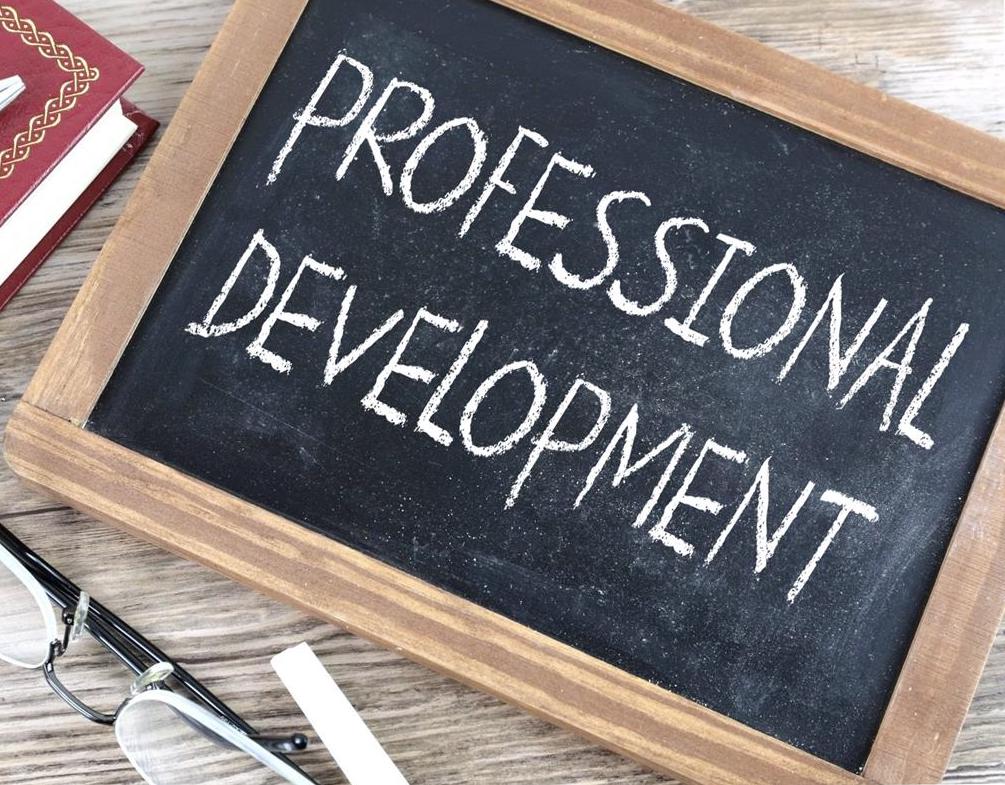Are you feeling stuck in your career, but not sure how to take it to the next level? Or, as a manager, are you wondering how to inspire your team to reach their full potential while increasing job satisfaction? That’s the spot. Growing your skills. Teamwork and individual effort both get a boost; this program helps everyone advance.
Many people are secretly nervous about taking a leap in their career. You might not even be aware of various forms of help to gain an edge. I’ve spent countless hours finding new things about ongoing professional development that most others completely miss.
Table Of Contents:
- So, what exactly *is* professional development?
- The Value of Investing in Your Career
- Professional Development for Managers
- Investing in your employees’ growth pays off in many ways; improved skills, higher morale, and increased productivity are just a few.
- Different Forms of Professional Development
- We’ve reached the end.
So, what exactly *is* professional development?
Professional growth happens when you actively seek out new skills through education and training. Practical experience builds on what you learned in school after you’ve started working. Things are always improving; we’re always learning.
Its form is highly variable; it could be almost anything. Want to grow professionally? You could take a class, attend a workshop, go to an industry conference, or even find a great online course. The options are endless! Many jobs want you to have certain certificates or to finish specific training programs.
Professional development: Is it really necessary? Yes!
There are several valid reasons. Think bigger opportunities and better positions—that’s what this offers. You have a shot at a promotion! There’s a correlation, according to reports, between extra things. Better skills mean better job opportunities; get promoted! Investing in this will be beneficial; it’s a sound financial decision.
From a team or company perspective, professional development opportunities for employees help improve turnover. Consider this carefully; it’s a big decision. It’s complicated.
The Value of Investing in Your Career
Sometimes it’s hard to see beyond the immediate moment. Taking time out for professional development may feel counterintuitive. Actually, the facts say something else entirely.
Education’s advantages are numerous. Improved critical thinking and a higher income are just two of the many significant advantages. Investing in this is a sound choice. If you’re an employee, pursuing learning opportunities shows initiative and a willingness to adapt, qualities highly valued by employers.
Stand Out in the Crowd
In a job market with tough competition, standing out is critical. Completed coursework or industry certifications on a resume demonstrate expertise, and that will get someone noticed. Working on your career now will help you later. This will help you succeed; you’ll be ready for anything. Finding a job is really competitive right now.
Its impact? Far greater than you’d expect. According to Clear Company, a huge 94 percent of employees would stay at a company longer if it invested in their career development.
Professional Development for Managers
Managers sometimes find giving feedback tricky. Statistics show many managers get stressed when sharing less-than-great information about a person. About 21% try avoiding the conversation, hindering employee growth and team performance.
This often ends up hurting, not helping things. Zippia found out. Two-thirds of workers feel… A serious problem exists: plenty of jobs lack meaningful feedback for employees.
Build a Stronger Team
Professional development is one tool that can help build stronger teams. Some of this development takes place in the current workplace and outside of it. We’re looking at both angles here. For example, we are considering both the positive and negative aspects of the situation.
Increased employee training often results in higher productivity and greater job satisfaction—a fact supported by numerous studies showing a strong correlation between professional development and positive employee outcomes. For example, companies that invest in training often see a return on that investment through increased efficiency and reduced turnover. You’ll soon understand exactly what types of opportunities benefit everyone. Learn specific advantages you will want to know for both individual contributors and the team as a whole.
Improve Employee Retention and Morale
Offering learning opportunities to employees makes good business sense. It improves potential turnover rates too. Creating leadership opportunities help too.
A confident team is a successful team; it’s a win-win! Happy employees are better workers. This leads to increased overall morale for an entire office.
Don’t get left behind—keep up with your industry.
Many industries are improving, but technology is really taking the lead. We see this in the numbers. Corporate learning helps managers keep up. Learn to adjust to workplace shifts; that’s what this program offers. You’ll walk away with some seriously helpful skills; skills you can use immediately. We should all encourage workers to pick up new skills; it benefits everyone. We should see what’s available. So many things are possible.
Employee skills don’t get stale. Show your team the way, and they’ll feel more connected. A shared direction breeds commitment. Their loyalty will grow.
Investing in your employees’ growth pays off in many ways; improved skills, higher morale, and increased productivity are just a few.
Employees who actively pursue professional development—through training, workshops, or independent learning—often experience enhanced job performance and increased perceived value within their organizations. Job satisfaction, raises, and promotions are all possible outcomes. It’s an investment in themselves. Career advancement and increased self-assurance are definite possibilities. Better time management and a healthier work-life balance are just two of the many personal perks.
Acquire New Talents
Focus on strengthening your both “hard” and “soft” work skills. Job knowledge learned from training would fall under hard skills, and things like communication is more of a soft skill. Investing in yourself pays off—you’ll be a more capable professional. You’ll pick up skills applicable to a broad spectrum of jobs and life situations; from problem-solving to communication, your abilities will be diverse and in-demand. Think of it this way: learn a new computer program, and watch your work efficiency and project management skills soar. This would lead to a promotion or even a higher salary!
Knowing how to better talk with others and show understanding in any industry matters a lot. For this reason, be sure to pay close attention to emotional intelligence too. Improving your communication skills and emotional intelligence go hand in hand.
Increase Your Earning Potential
Investing in ongoing learning also opens the door to future earning power. Level up your career. Boost your worth—get certified! A 2024 PayScale report indicated the highest job training demand was courses in management and leadership training (32%).
Employees are much happier when they see paths for advancement. Scientific investigation has uncovered 41%. Grab these chances—they’re game-changers! People will be far more engaged and committed as a result. These career advancement are often highly sought after.
Expand Your Network
Think through new options for building networks with others. Connecting with people is part of everyday life; we do it all the time. Think conferences, webinars and seminars. Networking also means using social media and going to training.
You never know when a relationship you form at one of those events becomes critical later. These things are hard to plan; this simply just takes place over time. Building confidence and making industry contacts go hand-in-hand; you’ll get both.
| Data Source | Statistic | Insight |
|---|---|---|
| Clear Company | 74% of employees feel they aren’t reaching their full potential due to lack of development. | Employee retention and growth are improved with smart investments in development programs; this presents a big opportunity for businesses. Upgrading your employees? Investing here is a smart move; expect significant profits. This pays off handsomely. Think big returns. Think of the returns! |
| Better Buys Survey | Professional development increases employee engagement rates by 15% | Direct link of employee engagement with these extra learning experiences and shows attending professional development helps. |
| Better Buys Survey | Professional Development increases retention rates by 34%. | Employee retention improves when companies invest in skill-building training. Keeping great employees is easier this way. |
| Harvard Business Review | About 21 percent of managers avoid giving negative feedback | Shows opportunity and value of this process with improved confidence by using an innovation strategy and online options to build confidence. |
Different Forms of Professional Development
Professional development takes on many shapes and forms. Long-term career growth? Skill building—that’s the key. Focusing on an individual development plan helps too.
Some programs might come right to the office or worksite. Others might involve attending meetings or taking online classes. Level up your game; many opportunities await those who push further. Consider your choices; then, make a move. Don’t just sit there!
Internal Opportunities
Many times, you do not need to search outside of your organization for opportunity. A mentoring program or corporate retreat is useful. Company goals and values are reflected in these programs. Everyone learns in their own way.
Look for special lunch-and-learn sessions that might add some specific new skills too. Training could easily include job shadowing a colleague too. Early career professional staff gain from this a lot.
Industry Networking Opportunities
Consider going to tradeshows and conferences to learn and network too. In this scenario, look to do things to expand connections outside of your existing group. Participating in a leadership development program would help.
You never know where you might be in your career in five years. Everyone’s welcome at our professional development meetings; join the conversation! Be sure to network on social media.
Outside Programs, Coursework, and Seminars
Some formal online coursework programs exist too. Find a good training program—teaching is a great example of a field with lots of training opportunities. Many certificate courses can really help. Completing professional development training helps an early career professional.
Often, there is cross-over where some of these online courses, workshops, and even training seminars. Many offer dual networking and training. Keep in mind a course can be in-person or online to let participants go through professional training at times.
We’ve reached the end.

Ready for a career upgrade? Skill development is the key. Plan carefully—it makes all the difference. Both personal and professional goals really are what fuel and are behind “the why” when talking about professional development. Your professional development plan is the first step.
Think beyond present circumstances, though. Picture yourself succeeding. As you progress, remember your entire career path. Personal growth? You’ll get a better life—a richer, more meaningful one—by making this investment. The effort you put in to improve yourself will always come back to you tenfold. Every small step counts. Investing in yourself pays off in the long run. It’s been proven. Better yourself, better your life. Stronger teams and better skills are just the start; you’ll discover how far you can go.

